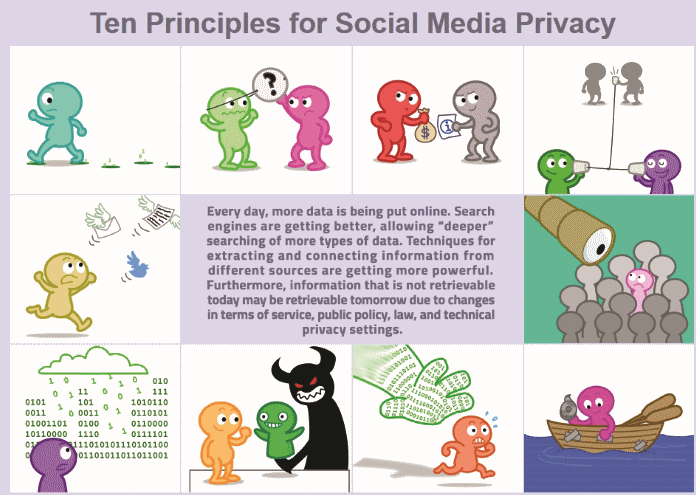From the Archives: Cybercasing the Joint
It's been five years since Gerald Friedland, then a researcher in the Speech Group, and Robin Sommer of Networking published "Cybercasing the Joint: On the Privacy Implications of Geo-Tagging" as an ICSI technical report. Quite a bit has changed around here in the meantime (Gerald now directs a new group, Audio and Multimedia, and Networking has been renamed Networking and Security to reflect the priorities of the group), but we're still working on ways to make sure that people know how to protect their privacy on the Internet.
In honor of the report's fifth birthday, here's a selection from our archives on privacy. You can also check out the Teaching Privacy web site and our recent newsletter feature on privacy.
May 2010: Gerald and Robin publish "Cybercasing the Joint: On the Privacy Implications of Geo-Tagging" as an ICSI technical report.
August 2010: Gerald and Robin present the work at the USENIX Workshop on Hot Topics in Security in Washington, D.C. They get some ink - the New York Times, MIT Tech Review and the Atlantic are among the news organizations that publish articles on cybercasing.
July 2011: The National Science Foundation funds "Geotube," a project that focuses on showing how it is possible to aggregate public and seemingly innocuous information from media and web sites to attack the privacy of users.
July 2012: Jaeyoung Choi, Gerald, and their collaborators present an algorithm that estimates where Internet videos were shot by training itself on both videos for which locations have already been identified and those for which they haven’t.
October 2012: A team led by Luke Gottlieb presents a method of using Amazon's Mechanical Turk crowdsourcing platform to complete skilled tasks (such as estimating where videos were shot). This method is used to support other work on privacy.
2013: ICSI establishes the Audio and Multimedia Group to focus on problems related to multimedia analysis and retrieval. A major focus is the privacy implications of information available online.
Mid-2013: The Teaching Privacy Team, a cross-disciplinary group working to educate the public about online privacy and supported by the Geotube project, publishes ten principles for online privacy. The team has continued to refine the principles, which are explained on its web site.
August 2013: The Teaching Privacy Team releases Ready or Not?, which takes publicly available GPS data attached to your Twitter and Instagram posts to create a map of where you've been posting from and when you're posting there - information that could be used to stalk you.
2014: ICSI hosts two events sponsored by Teaching Privacy and the team's colleagues: a viewing of a documentary that exposes what corporations and governments learn about people through Internet and cell phone usage, and a workshop featuring panel discussions with journalists, business leaders, and scientists who are working on privacy and security concerns.
September 2014: NSF funds a project, TROPE, that supports Teaching Privacy as it develops classroom-ready teaching modules to educate young people about why and how to protect their privacy online.
March 2015: Teaching Privacy presents the first of its teaching modules, which are organized around the principles released in 2013.

